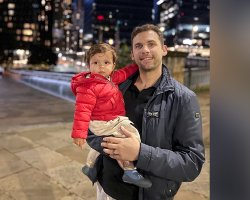Decriminalization Not a Silver Bullet For Americans

The subject of drug decriminalization was a hot topic in Oregon in 2020. That was the year that voters in the state approved a law that eliminates criminal penalties for possession of any drug. This is the first U.S. state to make such a move, while a few other countries have taken similar steps.
Now, a person who is found with the following quantities of drugs (or less) is subject only to civil penalties:
- Less than one gram of heroin or MDMA
- Less than two grams of methamphetamine or cocaine
- Fewer than 5 pills of ecstasy
- Fewer than 40 units of LSD
- Fewer than 40 units of methadone or oxycodone (non-prescribed)
The penalty for any of these possessions is equivalent to a traffic ticket. A person is fined $100 but the fine can be waived if the person agrees to participate in a health assessment.

For slightly larger quantities of some drugs, the penalties have been reduced from felonies to misdemeanors:
- One to three grams of heroin
- One to four grams of ecstasy
- Two to eight grams of methamphetamine or cocaine
Any person selling these drugs is still subject to criminal penalties.
More Details on Oregon’s Measure 110
Regarding the health assessments, this new law specifies:
The health assessments are conducted through addiction recovery centers and include a substance use disorder screening by a certified alcohol and drug counselor. Health assessments must be completed within 45 days of the violation.
The law also requires that millions of dollars be transferred from the Oregon Marijuana Account to the Drug Treatment and Recovery Services Fund to help those people who are not able to comply with this new law. What will these funds be used for?
The Oversight and Accountability Council established by the Director of the Oregon Health Authority would give grants from the fund to government or community-run organizations to create addiction recovery centers. The centers must provide immediate medical or other treatment 24 hours a day, health assessments, intervention plans, case management services, and peer support and outreach.
Comparison to the Portuguese Model of Decriminalization
Articles discussing Oregon’s Measure 110 usually cite Portugal as an example or model of decriminalization. The measure is somewhat similar to Portugal’s law but there are some differences.

How does Portugal’s law work?
- You’ll be arrested and taken to the police station.
- Your drugs will be weighed.
- If the amounts are deemed to be within the limits set for personal use, you will be sent the next day to the Commission for the Dissuasion of Drug Addiction.
- A psychologist or social worker will interview you before you appear before a three-person panel that will encourage you to cease your drug use.
- If you refuse help, you may be asked to complete community service or a fine will be imposed.
- If you can’t pay the fine, your possessions may be sold to pay it for you.
What if the Person Still Uses Drugs?
Portugal invested in establishing a treatment and recovery services network. Outpatient counseling, detoxification facilities and therapeutic recovery communities are made available to those who can’t quit using drugs.
For example, if a person is addicted to heroin, they’ll be enrolled in a treatment program. All treatment is paid for by the Portuguese government.
The Commission can also impose sanctions on a person who refuses rehabilitation. That person may be refused a license to practice their profession (such as teacher, doctor or taxi driver) or they may be banned from visiting certain locations.
A Vital Component to the Portuguese System
The Portuguese system is not passive, it is active. This is an important point: there is an intention that each person break free from the need for drugs. The goal is abstinence—freedom from any illicit drug use.
This motivation can be seen in the words of Dr. João Goulão, Portugal’s director-general of drug policy. He said:
“Decriminalization is not a silver bullet. If you decriminalize and do nothing else, things will get worse.”
When the decriminalization plan was being established in 1998, the originators were aware that other actions needed to take place. A report from the planners stated:
“…there is a general belief that decriminalization increases the need for prevention, for example, to communicate to the public that decriminalization does not condone drug use…There is a consensus that decriminalization, by destigmatizing drug use, will bring a higher proportion of users into treatment, thereby increasing the need for treatment.”
Therefore, in planning this transition, Portugal focused not only on civil penalties and treatment but also on prevention and reducing the demand for intoxicating substances. What actions are they taking?

- Drug prevention activities have been implemented in schools, mainly in sciences, biology and civic education classes.
- Other drug prevention activities take place in workplaces, the military, communities and within families.
- Vulnerable neighborhoods receive special attention, as do venues where drug use is likely, such as music festivals.
- Schools are active in offering students information about drugs and helping them develop improved social skills that lessen the chance that the student will reach for drugs.
Is Oregon Really Ready?
Unfortunately, the new Oregon law is a giant social experiment with Oregonians as the guinea pigs. It will take years to know the results of this legislative change. If they can take similar steps to those implemented in Portugal, perhaps it will work.
Sources:
- https://www.oregonlive.com/politics/2020/11/here-are-the-drug-limits-under-oregons-first-of-its-kind-decriminalization-law.html
- https://ballotpedia.org/Oregon_Measure_110,_Drug_Decriminalization_and_Addiction_Treatment_Initiative_(2020)
- https://www.oregonlive.com/politics/2020/11/here-are-the-drug-limits-under-oregons-first-of-its-kind-decriminalization-law.html
- https://vancouversun.com/opinion/columnists/daphne-bramham-decriminalization-is-no-silver-bullet-says-portugals-drug-czar
- https://www.opb.org/article/2020/11/04/oregon-measure-110-decriminalize-drugs/
- https://www.drugfoundation.org.nz/matters-of-substance/may-2013/drugs-are-legal-portugal/
- http://www.midcoastforum.org/wp-content/uploads/greenwald_whitepaper.pdf
- https://www.emcdda.europa.eu/system/files/publications/4508/TD0116918ENN.pdf


 ®
®